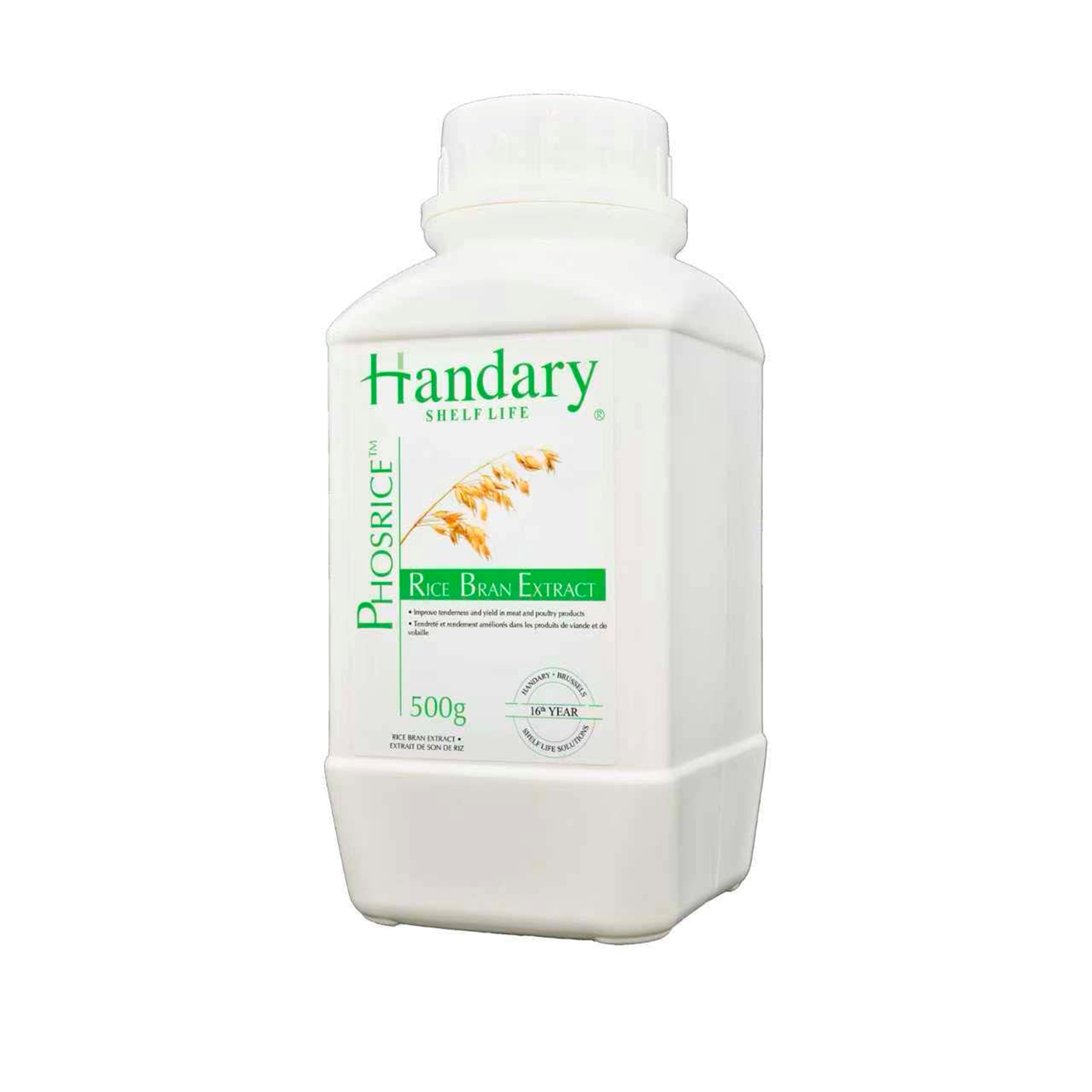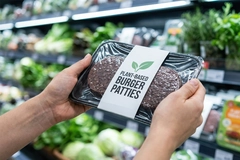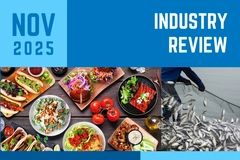
- Industry news
Industry news
- Category news
Category news
- Reports
- Key trends
- Multimedia
- Journal
- Events
- Suppliers
- Home
- Industry news
Industry news
- Category news
Category news
- Reports
- Key trends
- Multimedia
- Events
- Suppliers
Fi Europe Innovation Awards 2025: Plant-based nominees eye transformational food systems
Key takeaways
- The Fi Europe Plant-Based Innovation Award 2025 finalists are Relsus, Handary, Royal Avebe, Reborn Biotech, and ICL Food Specialties.
- Plant-based claims are now a major competitive driver in the F&B industry, with many consumers favoring plant-based proteins and ingredients over ingredients with animal origins.
- The finalists’ initiatives focus on advanced solutions for plant-based offerings with clean label and sustainable appeal.

In this in-depth look at the upcoming Fi Europe Innovation Awards, Food Ingredients First speaks with several of the finalists for the Plant-Based Innovation Award category. The celebration and awards ceremony will take place on Tuesday, December 2, in Paris, France.
Relsus: Harnessing sustainable proteins
Headquartered in Singapore, with manufacturing and farming footprints in India, Relsus is “redefining plant-based proteins for the global food systems,” using its nominated proprietary Relsus Ultra-Precise Filtration technology.
Vineet Singhal, founder and CEO, tells us: “For years, formulators have struggled with gritty textures, off-flavors, and poor functionality in plant-based ingredients. We’ve turned that challenge into an opportunity, creating a new product line with our proprietary Relsus Ultra-Precise Filtration technology.”
This technology has been validated by international food laboratories and is setting new benchmarks in three critical areas:
- Clean Sensory — ensuring a neutral flavor profile free from off-notes.
- Superior Solubility & Emulsifying Capacity — delivering exceptional texture and mouthfeel.
- High Nutrition — with low sodium and minimal heavy metals, making them a safe and nutritious addition to any recipe.
 Relsus’s flagship products — PeaTein, ChanaTein, and MungPro — offer F&B companies a clean-tasting, quality protein option that meets the needs of today’s consumers.The technology has opened up possibilities across a range of food applications, including RTD beverages, dairy and hybrid alternatives, high-protein snacks, and baked items.
Relsus’s flagship products — PeaTein, ChanaTein, and MungPro — offer F&B companies a clean-tasting, quality protein option that meets the needs of today’s consumers.The technology has opened up possibilities across a range of food applications, including RTD beverages, dairy and hybrid alternatives, high-protein snacks, and baked items.
Relsus’ advanced technology has earned the company a spot among the finalists for the Fi Innovation Awards 2025 in the Plant-Based Innovation category. Singhal believes the nomination “validates our approach and underscores that the future of plant-based is not about being an ‘alternative’ anymore; it’s about excellence and solving real problems. It’s about meeting the needs of the industry and supporting players who are tackling supply chain challenges.”
“Plant-based isn’t a compromise. It’s the future of food — tackling protein deficiency and driving sustainability.”
Handary: PhosRice — rice bran extracts
Hadary’s PhosRice is a clean label, multiphase functional matrix made entirely from upcycled rice bran. Through the company’s proprietary Rice Bran Triad Synergy (RBTS) engineering, it restructures the natural fiber–lipid–protein architecture of rice bran into a stable system that delivers the same multifunctional performance traditionally achieved with synthetic phosphates.
“For plant-based manufacturers, this is a major step forward,” explains Tugba Kabasakal, operational director. “PhosRice enables hydration, binding, gelling, emulsification, freeze–thaw stability, and strong structural integrity, all without the use of artificial additives. As brands face increasing pressure to remove phosphates and E-numbers, PhosRice offers a timely, category-defining solution that aligns performance with clean label expectations.”
“The origin of PhosRice stems from a challenge Handary observed across plant-based, hybrid, and alt-protein applications: plant proteins do not bind water or maintain structure as effectively as animal proteins, especially under heat or freeze–thaw stress, without relying on synthetic phosphates.”
“We wanted to solve this naturally,” Kabasakal continues. “Rice bran, rich in soluble fibers, lipophilic antioxidants, and functional peptides, provided the ideal starting point. Through RBTS engineering, we transformed this undervalued agricultural co-stream into a high-performance, clean label structuring ingredient capable of delivering phosphate-level functionality across modern food systems.”
She believes PhosRice was nominated because “it gives the plant-based industry something it has long needed but never truly had: a natural, clean label way to achieve phosphate-level performance.”
“It fills a real technical gap, and the industry recognized that immediately,” adds Kabasakal. Handary engineers natural functional systems to develop its PhosRice ingredients, which are a clean label, multiphase functional matrix made entirely from upcycled rice bran.
Handary engineers natural functional systems to develop its PhosRice ingredients, which are a clean label, multiphase functional matrix made entirely from upcycled rice bran.
“For us, the nomination is meaningful. It validates the years we spent studying natural structures and unlocking value from rice bran. And it demonstrates that clean label solutions can be as effective, and sometimes even more effective, than the synthetic tools the industry has relied on for decades.”
Royal Avebe: PerfectaGEL FS confectionery starch
Royal Avebe has also been nominated for its PerfectaGEL FS, a starch developed specifically for the confectionery sector, particularly for plant-based gummies.
One of the main challenges in producing starch-based gummies is the lengthy and energy-intensive drying process. According to Royal Avebe, PerfectaGEL FS enables manufacturers to reduce drying time while maintaining product quality significantly. This not only increases factory output but also reduces the environmental footprint.
Stefan Wessel, customer application specialist for confectionery, says the creation of PerfectaGEL FS was driven by close collaboration with confectionery producers. “Open dialogue and partnership are essential for meaningful innovation. By listening to their needs, Avebe focused on developing a solution that is both efficient and sustainable, supporting the industry’s transition to plant-based products.”
“Being nominated as a key plant-based innovation is a great honor for us. It recognizes our commitment to developing ingredients with innovative functionalities that help our customers succeed in a fast-evolving market. And having a professional jury validate PerfectaGEL confirms the approval of a trusted third party.”
 Royal Avebe’s PerfectaGEL FS is a starch developed specifically for confectionery applications, working particularly well in plant-based gummies.Royal Avebe’s innovation center and application labs enable us to develop and test new starches for various food segments rapidly, shares Wessel. “Our strong focus on customer support and co-development ensures that our solutions are tailored to customer needs. Last but not least, our value chain, which features sustainable potato varieties grown by our farmers and processed into final, plant-based, and sustainable ingredients for our customers, adds further value.”
Royal Avebe’s PerfectaGEL FS is a starch developed specifically for confectionery applications, working particularly well in plant-based gummies.Royal Avebe’s innovation center and application labs enable us to develop and test new starches for various food segments rapidly, shares Wessel. “Our strong focus on customer support and co-development ensures that our solutions are tailored to customer needs. Last but not least, our value chain, which features sustainable potato varieties grown by our farmers and processed into final, plant-based, and sustainable ingredients for our customers, adds further value.”
“We believe the future of food lies in innovation, sustainability, and collaboration. By developing solutions that improve efficiency and reduce environmental impact, Royal Avebe is helping to shape the next generation of products for both plant-based, regular, and hybrid foods,” he notes.
Reborn Biotech: Clear Pea Protein
According to Reborn Biotech, this next-gen Clear Pea Protein represents a breakthrough in plant-based innovation, addressing long-standing formulation challenges across the F&B industry.
Lily Xue, director of marketing and sales, says: “Traditional pea protein and peptides often face limitations such as poor solubility, sedimentation, and off-flavors, which restrict their use in applications requiring clarity, stability, and pleasant sensory attributes.”
The company developed a proprietary enzymatic hydrolysis process that produces short-chain pea peptides with outstanding solubility and dispersibility in both hot and cold liquids.
“Unlike conventional plant proteins, our soluble pea peptides remain stable in clear beverages, powdered drink mixes, protein waters, and other high-demand applications,” comments Xue.
Key features include:
- Superior solubility: Rapid dispersion without sedimentation or turbidity.
- Neutral taste profile: Minimized bitterness for improved flavor masking and clean sensory performance.
- Nutritional benefits: High-quality, plant-derived peptides rich in essential amino acids and bioactive properties.
- Versatile applications: Ideal for clear beverages, sports nutrition, functional foods, and plant-based meal replacements.
- Sustainability: Derived from peas, a renewable, allergen-free, and environmentally friendly protein source with a low carbon footprint.
Xue further adds: “This innovation addresses the rising demand for plant-based, allergen-free protein alternatives while supporting manufacturers with a clean label, consumer-friendly solution. With its unique functionality, our soluble pea peptides enable product developers to expand into categories that were previously unattainable with conventional plant proteins, driving growth in health, wellness, and sustainability markets.”
Across the globe, plant-based solutions are transforming the way we eat, offering more sustainable, nutrient-rich, and inclusive alternatives for those embracing vegan or flexitarian diets. As health-conscious consumers increasingly turn to plant-based options for their diets, the challenge for F&B brands is to deliver clean taste, exceptional functionality, and high nutrition while avoiding contaminants such as heavy metals and toxins.


















